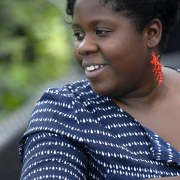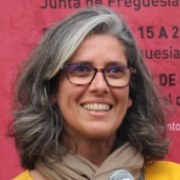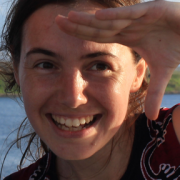Retaining post-pandemic inclusive online engagement
What a year! We all remember how it started; we closed our doors, we had to protect collections and jobs, and tried reaching out to our audiences. We went in all directions; adapting programmes, creating new online content, trying different platforms and formats and discovering the best methods, by trying, failing and/or succeeding.
Now it is time to step back and analyse. What did we do well? What do we want to keep? What do we want to improve? What can we transfer? How do we ensure that our activities are the most diverse, equitable and inclusive? Using participants’ experience and inclusive design principles, we will underline what needs to remain in the “new normal.”
This session will focus on online inclusive (un)successful experiences, promoting open experience sharing and collaborative solution building, based on existing tools and resources and on real examples.
Session speakers
ECSA | European Citizen Science Association
Simona Cerrato will share experience with the Trieste City Council and the Student Council of Friuli Venezia Giulia (Consulta Studentesca), dealing with children and young people aged from 9 to 14 and 15 to 19, respectively. Both organisations have an active part of a process to shape an open schooling structure that truly takes into account the needs of young people. This contribution emphasis on the transition from presential to online activities maintaining the inclusion and equity scope of the projects.
Communication Coordinator
Luis Gonçalves will give a testimony on the diversity of online activities that were developed during the lockdown for maintaining the connection with children and school community. In such a small science center, the all team became involved in developing digital activities and learning on the job for producing both synchronous and asynchronous digital resources. Specific inclusion challenges emerged when trying to produce these digital activities and relevant inferences can be drawn on diversity, equity and inclusion.
Eva Durall will present the Design Principles and Methods Toolkit for Supporting Science Learning Outside the Classroom that have been formulated in the context of the SySTEM 2020 project. The toolkit provides guidelines, practices and a selection of cases to support educators design programmes and activities from an equity perspective. This co-designed material has been co-designed with informal science education stakeholders through a series of participatory sessions.





